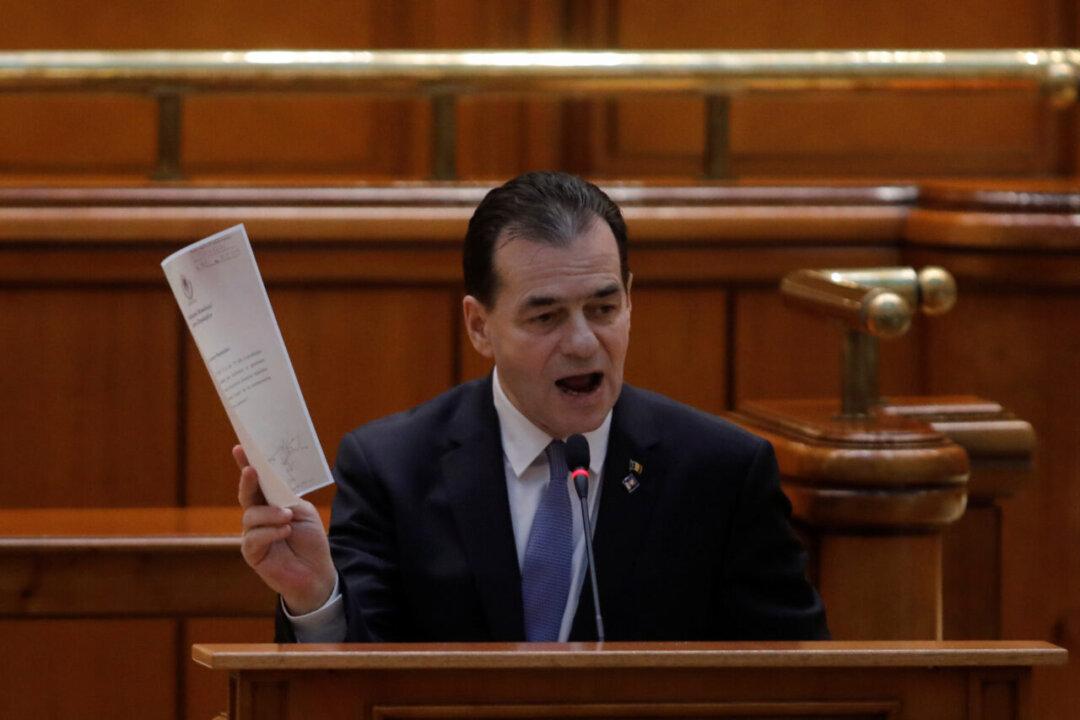Romania’s President Klaus Iohannis appointed outgoing Prime Minister Ludovic Orban on Thursday to form a new government for the second time after his center-right minority government lost a no-confidence vote in Parliament the day before.
Orban, leader of the National Liberal Party (PNL), was first asked by Iohannis to form a government three months ago after the Social Democratic (PSD) government led by Prime Minister Viorica Dancila lost a no-confidence vote amidst corruption scandals.





